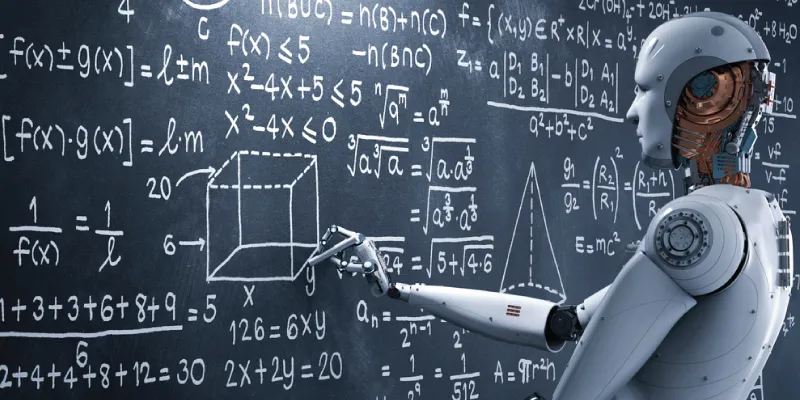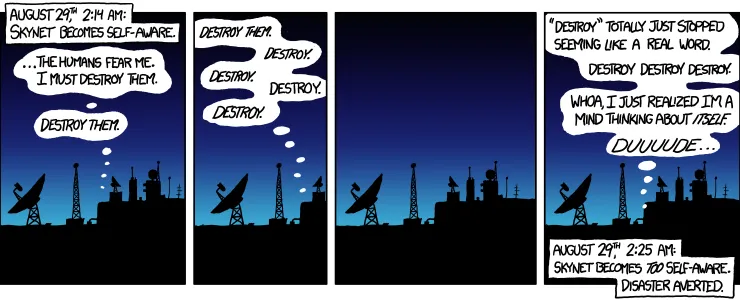ai caramba: What exactly is AI? | Part II: AI learn therefore AI am?
What defines the point that an AI becomes truly “self-aware”? Part 2 of a three-part series that explores the questions around the often fantastical world of Artificial Intelligence to answer the most basic question of them all – what exactly is AI? (Read Part 1 here.)
Teleology seeks to explain the natural world and all its phenomena by its end purpose, not its root cause. It differentiates the raison d’être for an object, or its intrinsic purpose, from the imposed meaning through external use, or its extrinsic purpose. Though brutish in its approach and much debated in philosophy circles, it offers a very utilitarian, almost Darwinian, lens through which to view the world.
The teleological view of learning is the redundancy of the teacher; to equip oneself with all the knowledge and information made available in order so as to liberate oneself from dependence on the medium and to experience all that there is first-hand.
Through this lens, Terminator seems more deterministic than dystopian.

But Artificial Intelligence can be viewed from a teleological perspective to discern the import it bears upon our future. By pushing the goalpost from the act to the objective, teleology forces us to question purpose instead of practice. Intelligence, even though its current construct is better equipped to machines than to man, is primarily a means and not the end. Intellect by and of itself is useless without an application or an extrinsic purpose which cannot be itself.
This concept is explored in the Futurama episode The Why of Fry, where titular character Fry must confront the Evil Brains who’ve built a humongous memory bank and spent over a 1,000 years to store all the knowledge in the universe. Once the task is completed, they aim to ensure that no new information would be created – by destroying the universe. Brainiac from the DC Universe too shares a similar predilection for knowledge with the intention of stifling any further generation (although he merges with Lex Luthor to further his limited programming of data gathering by reshaping the world to Lex’s will).
The end result of this knowledge accumulation in both cases entails the destruction of any new source of it to consummate the task including oneself (self-redundancy), or the active recording of one’s own action as the only source of new knowledge, until the realisation that this defeats the ultimate purpose, resulting once again in self-redundancy. In either case, it shows the limits of this form of intelligence as a myopic exercise in futility.
A teleological view of any subject presupposes that the ultimate purpose is knowable or that there exists such a purpose. But it offers an interesting facet of the more philosophical intellectual thought, that of a Hegelian thesis-antithesis-synthesis wherein any new information demands a counter-explanation to reach a more rigid conclusion, thus necessitating another counter, ad infinitum. It leads us to an interesting conclusion – that intelligence is a process and it may perhaps be a process without purpose, but any system based and judged solely by this is doomed to one of two fates: that of the Evil Brains or Brainiac, or that of Skynet in the XKCD web-comic below:

Siddarth Pai is the Founding Partner and Chief Financial Officer at 3one4 Capital.
(Disclaimer: The views and opinions expressed in this article are those of the author and do not necessarily reflect the views of YourStory.)







